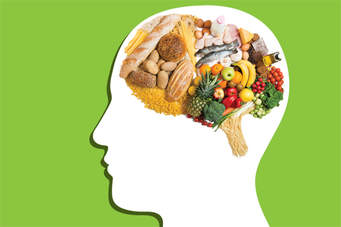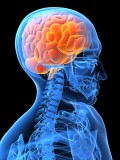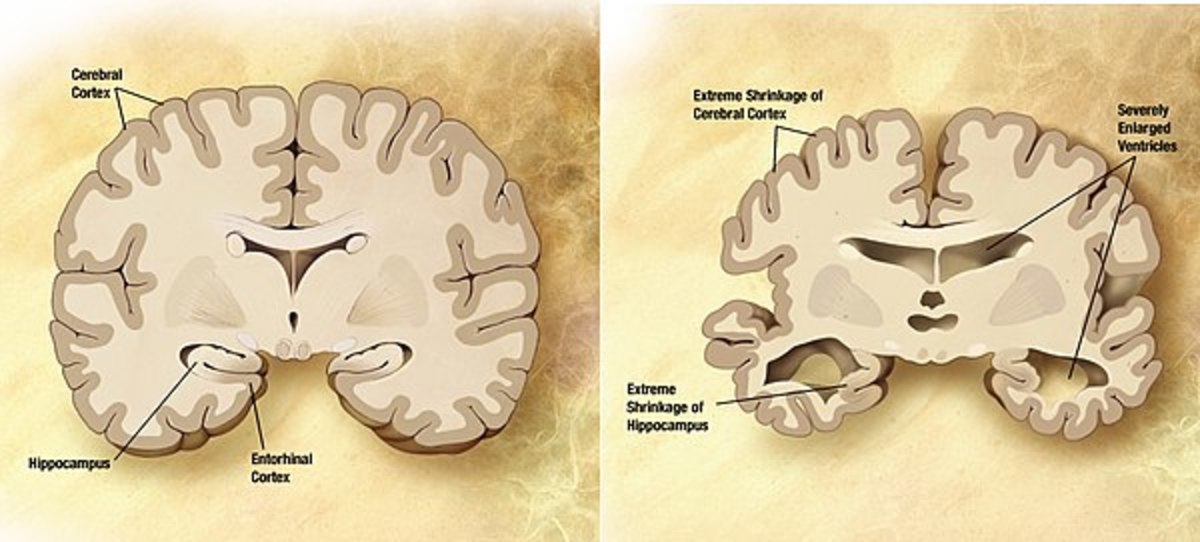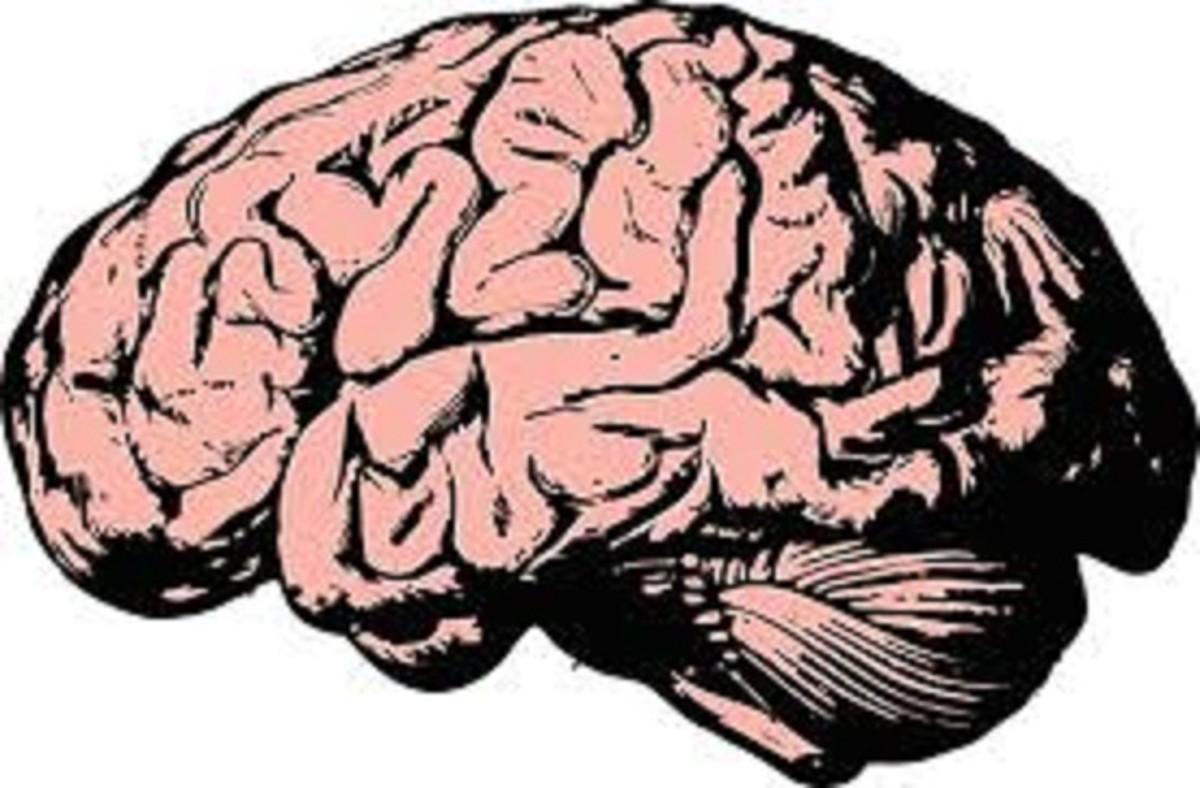Healthy Brain Habits

The human brain is the most complex organ but it is also one of the least understood. It is an astonishing organ capable of great feats of memory but susceptible to damage. It is remarkably adaptable to change.
The scientists claim that the average human brain is three times the size of what it should be in relation to our body size. Human beings have a much larger brains than animals as compared to the size of our bodies.
All don’t have exactly the same size of brain. Some have larger while some others have smaller. Many of us wonder if the brain size may be linked with intelligence or some disabilities. According to one large-scale study by Virginia Commonwealth University, bigger brains were correlated with higher intelligence. But many experts do not agree with the conclusions. So, more research is needed on this issue. An important observation has been made that elderly adults suffering from Alzheimer’s disease have smaller hippocampus. This area of the brain is strongly associated with memory.
Human brain health depends on its ability to function well. This requires making wise decisions, solving problems, interacting successfully with others, and enjoying an emotional balance. All of these functions demand the capacity to remember, comprehend and learn as well as to think strategically and to be innovative in solving problems as they arise.
Nothing is as individual as the brain. The human brain is not a static organ as it changes continually. It is endowed with a remarkable ability to reorganize itself by forming new neural connections throughout life. This is called neuroplasticity, which allows the neurons (nerve cells) in the brain to compensate for injury and disease and to adjust their activities in response to new situations or to changes in their environment. Our lifestyle will influence this remarkable adaptability to change to a large extent by keeping the brain’s complex circuits synchronized. Better brain health means better brain performance.
Healthy Brain Habits –
The following are some habits which promote brain health.
Being social—People who stay connected with others have higher levels of intelligence and wisdom than those who are more isolated. An active and socially integrated lifestyle in late life seems to protect against dementia and Alzheimer’s disease. So, join a new club or make new friends and reconnect with old ones. Social networking sites like Facebook are good means to connect with far-flung people.
Being open-minded—We should keep our mind open to the views and perspectives of others without being judgmental. We should empathize with others if they are different in any way. There is a lot we can learn from others at any time if we are open-minded.
Accept the mistakes readily-- The Roman philosopher Cicero said, “Any man is liable to err; only a fool persists in error.” So, let us be bold enough to accept our mistakes readily. Feeling guilty about the mistakes of the past robs us of the happiness, which is a key factor in the promotion of brain health. Learning to accept ourselves and being kinder to us, when things go wrong, promotes our emotional health. It also helps us accept others as they are, promoting positivity in our relationships.
Read books and newspapers—Read books on various topics and subjects which will enhance your knowledge and learn other’s viewpoints. The current news will keep us updated in knowledge and there is a lot to learn from them. One 2009 study of 72 children ages eight to ten discovered that reading creates new white matter in the brain, which improves system-wide communication. White matter carries information between regions of grey matter, where any information is processed. Not only does reading increase white matter, it helps information to be processed more efficiently.
Tap into self-knowledge—There are so many events and circumstances in the life of everyone, which teach us many invaluable lessons. Let us reflect on them sometime and implement the teachings of those lessons.
Get fit—Aerobic exercise has been found to reduce brain cell loss in elderly persons. The duration doesn’t matter so long as one is actively exercising regularly. A new study adds evidence to the argument that exercise can help preserve brain health, particularly in the aging brain. The integrity of white matter, where billions of neurons are bundled together, is an indication of how well brain areas communicate. As white matter breaks down with age, the highways connecting parts of the brain erode. Aerobic fitness, particularly in elderly persons, helps maintain the integrity of white matter of the brain.
Feed the brain—Diet specifically low in fat and cholesterol but high in protein can reduce the risk of developing dementia. Vegetables and fruits promote excellent brain health because of anti-oxidants, vitamins, and nutrients provided by them. Also are recommended nuts and cold water fish for omega-3 fatty acids contained in them.
Let the brain work—Studies show that lower level of education leads to higher level of Alzheimer’s disease due to less mental stimulation. Take time to get lost in a book; do a crossword puzzle. What about Scrabble?
Re-wire brain into positivity—Positive emotions are like fuel for the brain as mental efficiency goes up, focus and alertness strengthens and innovation sparks. Positive people communicate better, feel energized and make better decisions. We can train ourselves to be more aware of what is worth appreciating in our lives. Consciously cultivating more positive emotions re-fuels us and improves mental health.
Practice regular meditation—Researchers have found that regular mindfulness meditation is linked with an increase in the brains signaling connections, called axonal density as well as the protective tissue that surrounds the brain’s axons. It has been found that regular meditation has a positive effect on the brain by decreasing the density of the grey matter in the amygdala - a brain region known for its role in stress. So, regular meditation reduces stress, anxiety depression, anger and fatigue, and increases alertness. Recently, researchers have found that brain regions associated with attention, memory and sensory processing are thicker in meditation participants than matched controls, including the prefrontal cortex and right anterior insula. Between-group differences in prefrontal cortical thickness are most pronounced in older participants, suggesting that meditation might offset age-related cortical thinning.
The bottom line –
The human brain is a muscle, which can be developed like any other muscle in the body. A unique ability of the human brain, called neuroplasticity, can be called to action to develop it even to great extents. Impressive transformational changes in the brain performance can be made by adopting healthy brain habits.
References -
- Lancet Neurol. 2004 Jun; 3(6):343-53. An active and socially integrated lifestyle in late life might protect against dementia. Fratiglioni L1, Paillard-Borg S, Winblad B.
- sraube@andrew.cmu.edu 2009; Carnegie Mellon Scientists Discover First Evidence of Brain Rewiring in Children
- Study Shows Reading Remediation Improves Children's Reading Skills and Positively Alters Brain Tissue
- Journal of Alzheimer's Disease, vol. 61, no. 2, pp. 729-739, 2018, Accepted 26 September 2017; Published: 19 December 2017
- Neuroreport. 2005 Nov 28; 16(17):1893-7. Meditation experience is associated with increased cortical thickness. Lazar SW1, Kerr CE, Wasserman RH, Gray JR, Greve DN, Treadway MT, McGarvey M, Quinn BT, Dusek JA, Benson H, Rauch SL, Moore CI, Fischl B.








